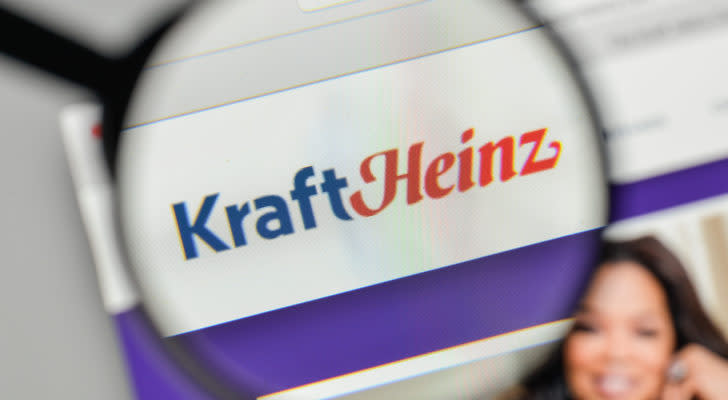7 Stocks That Might Win on Election Year Uncertainty
Soon, it will be that favorite time of the quadrennial cycle where American citizens will decide the future of this great nation, subsequently necessitating a discussion about election year stocks. On surface level, you might think that such periods would be rather disastrous for equities, especially with the vituperative environment. However, the hard numbers suggest otherwise.
According to Morningstar, “historical data suggests that elections are not synonymous with market selloffs. A deeper look at the historical trends of the S&P 500 SPX during election cycles demonstrates instances where markets have not only weathered political transitions but have shown resilience and provided favorable returns despite the uncertainty.” That’s encouraging if you’re considering stocks to buy in an election year.
What’s more, Morningstar discovered that market performance based on political-party control “shows that even during periods of a divided Congress, S&P 500 returns did not experience significant fluctuations.”
InvestorPlace - Stock Market News, Stock Advice & Trading Tips
Put another way, you might not have to worry about equities as a whole. Indeed, this time could be an ideal opportunity for election year stocks to buy.
Kraft Heinz (KHC)

Source: Casimiro PT / Shutterstock.com
What it is: A popular multinational food company, Kraft Heinz (NASDAQ:KHC) is the third-largest food and beverage company in North America, per its public profile. Also, it happens to be the fifth-largest in the world. As I pointed out before, KHC represents one of Warren Buffett’s favorite holdings. You really can’t go wrong with the Oracle of Omaha’s endorsement.
Relevance: Admittedly, KHC ranks among the stocks to buy in an election year not necessarily because it’s poised to do well in 2024. I mean, KHC offers great value for investors, trading at a discounted forward earnings multiple of 12.34x. Rather, I’m just pointing out that nothing specific about next year suggests Kraft Heinz will enjoy the upside. So, why go for it? Simply, people need to eat no matter who becomes president.
Pros: The company offers an attractive forward dividend yield of 4.36%, well above the consumer staple sector’s average yield of 1.89%.
Cons: Based on analysts’ average price target of $37.31, we’re talking limited upside.
Sempra (SRE)

Source: Michael Vi / Shutterstock.com
What it is: For better or for worse, millions of residents in Southern California are familiar with Sempra (NYSE:SRE). A utility giant, Sempra enjoys a natural monopoly. Even if competitors appear on the horizon, it’s incredibly difficult to break into the utility industry. Indeed, the high barriers to entry include regulatory hurdles. That means Sempra is entrenched.
Relevance: Now, for the reasons that many residents under the Sempra umbrella don’t like the company, it’s also an ideal enterprise for election year stocks. Listening to the political campaign trails, it’s hard to decipher who will win. You have one candidate saying some – let’s face it – outrageous things. On the other hand, the incumbent candidate isn’t exactly inspiring the base. But no matter, we must pay our utility bills.
Pros: Sempra offers a forward dividend yield of 3.18%. While it’s a bit low compared to the industry average, the payout ratio is reasonable at just under 50%.
Cons: Although SRE effectively offers permanent relevance, it printed a disappointing performance this year.
Johnson & Johnson (JNJ)

Source: Alexander Tolstykh / Shutterstock.com
What it is: A massive healthcare giant, Johnson & Johnson (NYSE:JNJ) recently spun off its consumer care products division. That makes J&J a more streamlined enterprise, focusing on pharmaceuticals and medical technologies. It’s not the sexiest enterprise for stocks to buy in an election year. However, it might actually benefit from the rancor in Washington.
Relevance: Primarily, healthcare represents a hot-button issue for practically all voters. And that’s especially the case for the older demographics. No party can afford to be portrayed as giving up on the most vulnerable citizens of America. That would be political self-harm. Secondly, the aging of this nation means that J&J should offer relevance no matter who’s elected.
Pros: J&J offers a decent forward dividend yield of 3.06%. That’s noticeably higher than the healthcare sector’s average yield of 1.58%. Also, with 61 years of consecutive payouts, that’s a status management will want to keep going.
Cons: Unfortunately, JNJ has not yet resonated with investors, with shares suffering relatively deep losses this year.
Vulcan Materials (VMC)

Source: madamF / Shutterstock.com
What it is: With so many venomous talking points going back and forth between the two major parties, it’s a wonder that anything gets done in Washington. Fortunately, on Wall Street, Republicans and Democrats can get together in support of Vulcan Materials (NYSE:VMC). My friends, Vulcan Materials is America because it builds the future or whatever. It’s easily one of the election-year stocks to buy.
Relevance: I don’t mean to be flippant but you’ve got to see the relevance here. Let’s consider the slogans of the last few years. At one point, we heard the rallying cry of build the wall. Later, the White House promised to build back better. What’s the common theme here? Building. Building what? I don’t know. Just something to keep the circus going.
Pros: Another reason why VMC ranks among the election year stocks is unanimous endorsement among analysts. Among 10 experts, they all stated VMC is a strong buy.
Cons: Vulcan has performed quite well this year so upside in 2024 could be limited.
Lockheed Martin (LMT)

Source: ranchorunner / Shutterstock.com
What it is: Ordinarily, I would assign Lockheed Martin (NYSE:LMT) as a beneficiary of Republican politics. However, a “flippening” happened in the political ecosystem where conservatives no longer eagerly support projection of military power, whereas Democrats seemingly want to bolster the military industrial complex. Strange stuff but that makes LMT one of the stocks to buy in an election year.
Relevance: I don’t want to go down too deep a rabbit hole regarding the geopolitical environment. However, you’d have to be comatose to not recognize the severe power plays at hand. Also, I don’t think it’s an exaggeration to say that America’s credibility is on the line here. Cynically, then, enterprises like Lockheed Martin should benefit because of the Teddy Roosevelt principle. If a fight goes down, it’s best to have the biggest stick.
Pros: If you’re looking for a discount among election-year stocks, LMT trades at a trailing-year earnings multiple of 16.33x. That’s lower than 79% of companies in the aerospace and defense industry.
Cons: Lockheed isn’t really convincing analysts who only rate it a consensus hold.
Chevron (CVX)

Source: Sundry Photography / Shutterstock.com
What it is: An integrated oil and gas stalwart, Chevron (NYSE:CVX) could be one of the stocks to buy in an election year if you anticipate that the Republican candidate has a great chance of taking the White House. With conservatives often championing the hydrocarbon sector, CVX may be a solid buy, especially with the relative discount.
Relevance: When it comes to relevance of CVX and its ilk, it comes down to the science. Like it or not, fossil fuels command high energy density. Outside of nuclear fuel, many other energy sources simply lack such magnitude of density. Therefore, even with the political and ideological push for clean and renewable energy infrastructure, the hydrocarbon sector should be relevant for many years to come.
Pros: Right now, the company prints a solid three-year revenue growth rate of 18.1%. Outside of a few blips, it’s consistently profitable. Also, it features a dividend yield of 4.04%, making it an enticing example of election year stocks.
Cons: Due to a combo of economic and geopolitical headwinds, CVX has been volatile lately.
First Solar (FSLR)

Source: T. Schneider / Shutterstock.com
What it is: Finally, if you anticipate that the Democrats will perform well in 2024 and you want to speculate on high-risk, high-reward enterprises, then solar-panel manufacturer First Solar (NASDAQ:FSLR) may be of significant interest. It goes without saying that liberals and progressives champion sustainability. And not that Republicans don’t but the left tends to be more vocal about it. That’s a plus for FSLR.
Relevance: Again, First Solar aligns with the left-leaning talking points about sustainability. Further, Generation Z advocates such practices, both at a broader level and also personally. You know what’s really enticing if you’re anticipating a blue wave? According to The New York Times, Gen Z is even more liberal than millennials. Plus, this cohort is less likely to become conservative as it ages.
Pros: Recently, several solar power enterprises have experienced a significant rise due to speculation about interest rate cuts.
Cons: I suppose that if those interest rate cuts don’t materialize, then FSLR may suffer a cruel reality check.
On the date of publication, Josh Enomoto did not have (either directly or indirectly) any positions in the securities mentioned in this article. The opinions expressed in this article are those of the writer, subject to the InvestorPlace.com Publishing Guidelines.
A former senior business analyst for Sony Electronics, Josh Enomoto has helped broker major contracts with Fortune Global 500 companies. Over the past several years, he has delivered unique, critical insights for the investment markets, as well as various other industries including legal, construction management, and healthcare. Tweet him at @EnomotoMedia.
More From InvestorPlace
Musk’s “Project Omega” May Be Set to Mint New Millionaires. Here’s How to Get In.
The #1 AI Investment Might Be This Company You’ve Never Heard Of
The Rich Use This Income Secret (NOT Dividends) Far More Than Regular Investors
The post 7 Stocks That Might Win on Election Year Uncertainty appeared first on InvestorPlace.
